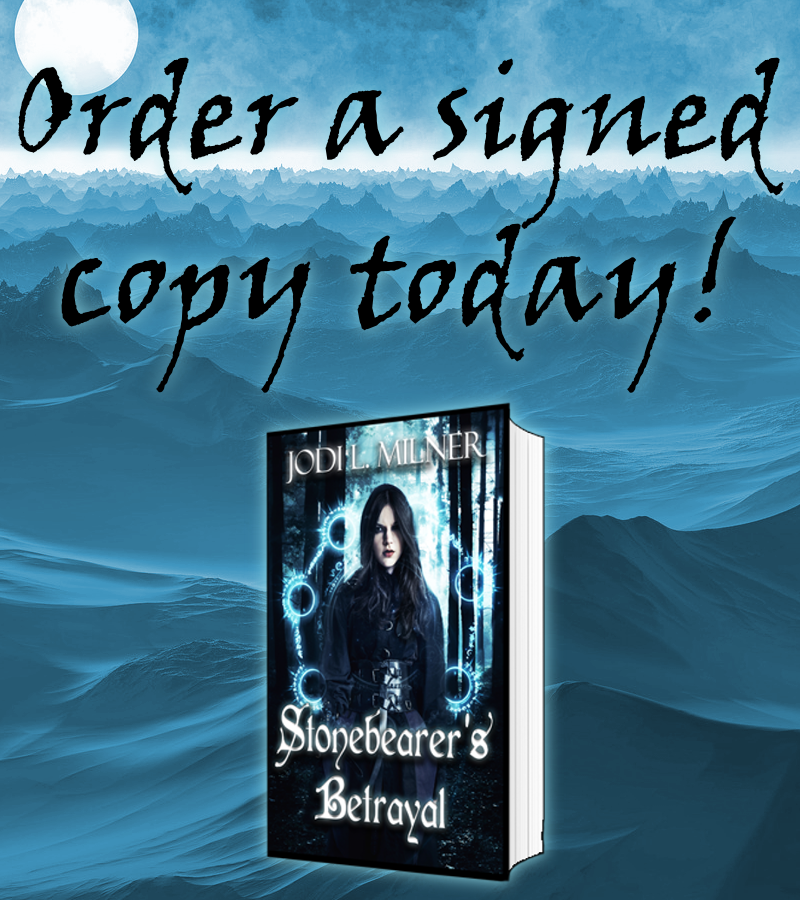As writers we all strive to compose vivid, dynamic scenes that stick with the reader long after they close the book. Scenes created so well that they allow the reader to escape space and time and enter into another world. But, how is it done? What makes these scenes work? What is the magic spell that turns ordinary into extraordinary?
Details.
Fat, juicy, unique details can turn the mundane to magical. Note I did not say adjectives, we are not describing things here. We are seeking out those little gems that add oomph. Now, there are those talented writers who manage to capture all these gems during the first draft, I am not one of them. I’m one of those who must push and pull at a scene, reshaping and polishing before it will sing. Right now most of my manuscript is a tuneless mess.
Let’s have fun with this –
Below is a scene from Tolkien’s, Fellowship of the Ring. This first example has all the details stripped out, all we see is the action – which is great – but it could be so much more.
“Gandalf lifted his staff and smote the bridge. The staff broke. The bridge cracked. At the Balrog’s feet it broke, and the stone crashed into the gulf.
“The Balrog fell forward and vanished. As it fell it swung its whip about the wizard’s knees. He fell. ‘Fly, you fools!’ he cried, and was gone.”
Now I’m going be naughty and add adjectives and adverbs instead of details, let’s see what we get –
“Gandalf the white lifted his mighty staff and smote the bridge. The staff broke unexpectedly. The narrow stone bridge cracked loudly. At the Balrog’s feet it broke, and the stone crashed into the endless gulf.
The Balrog fell forward clumsily and vanished. As it fell, it swung its barbed whip about the wizard’s knees. He fell. ‘Fly, you fools!’ he cried desperately, and was gone.”
That was painful for me to write, I have a passion for slashing pointless adverbs and adjectives so putting them in was hard. I kept wanting to answer all the questions my inner reader kept shouting at me. What happened when he used his staff, wasn’t it magic? Did Gandalf struggle when the whip snares him? What is left of the bridge? What was the Balrog’s reaction when faced with a wizard? The list goes on.
Here is the passage how Tolkien wrote it:
“At that moment Gandalf lifted his staff, and crying aloud he smote the bridge before him. The staff broke asunder and fell from his hand. A blinding sheet of white flame sprang up. The bridge cracked. Right at the Balrog’s feet it broke, and the stone upon which it stood crashed into the gulf, while the rest remained, poised, quivering like a tongue of rock thrust out into the emptiness.
“With a terrible cry the Balrog fell forward, and its shadow plunged down and vanished. But even as it fell it swung its whip, and the thongs lashed and curled about the wizard’s knees, dragging him to the brink. He staggered and fell, grasped vainly at the stone, and slid into the abyss. ‘Fly, you fools!’ he cried, and was gone.”
Next time you feel that your writing is missing something start asking questions and filling in the missing details. Your story and your readers will thank you for it.




What a great scene that is, I read the novels, but it is captured perfectly in the film.
Amazing how one can make a scene like that sound flat and boring if it’s not written correctly.
Adding those juicy details is almost like poetry I find. I am also not one of those lucky writers who can come up with such things right away. I polish and polish and have found that I’m finally getting enough shine, that things are looking good.
I agree, they handled it brilliantly in the movie – one of many great scenes. There is an art to finding great details, ones that add oomph without distracting.
Wow. What a powerful example. That middle one was painful to read, as well. “The staff broke unexpectedly” vs. “The staff broke asunder” — amazing how much difference one word makes.
I couldn’t stand the middle example either, it was really painful to write – especially while having the real example right in front of me! The right word does make worlds of difference!
The master Tolkien. One of my favorites and a great example. Thanks for the post, it is a needed reminder 😉
Thanks! If I ever found limitless time I would sit and reread Lord of the Rings in a marathon reading.
Great example. Sometimes it takes a while to find the sweet spot, balancing details and rhythm.
Agreed – there is a balance that must be found. Every writer has a different voice and a different way of seeing the world.
I agree with Alannah–that scene was great in the movie. How poetically he wrote, and what a thrill to read the original scene after the adjective laden example–shudder.
There is nothing like the real thing!
Thank you for this post. Tolkien is a superb writer. One could do worse than to copy him. I retweeted this because of it’s value.
Thanks, I really appreciate that!
Yeah, you scared me there for a minute when you added all that stuff, especially those adverbs. That was the first lesson I learned from my critique partners. Now I cringe when I see them.
Once you’ve seen the light of bad abverb usage you can’t go back – Now even in my pleasure reading they stick out, crying, “slash me! Slash me!”